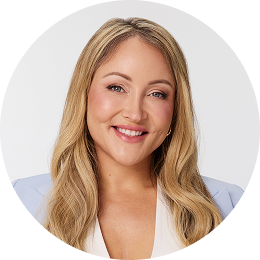gEveryone’s experience with menopause is different. For instance, while not every woman will deal with an uptick in acne during menopause, it’s not uncommon for breakouts to make a special appearance. It’s all thanks to changes in hormone levels.
So, if you find yourself looking in the mirror thinking, “I thought my days of acne ended back in high school!” this article is for you.
Read on to learn what menopausal acne is, why you might be dealing with flare-ups, and how you can treat this condition so you can enjoy clear, radiant skin during menopause.
What is Menopausal Acne?
Menopause is the time when a woman stops experiencing menstrual cycles. Typically, an individual is officially considered to be undergoing menopause when they’ve gone 12 consecutive months without having their period.
Just like puberty is a time of significant hormonal imbalance for adolescents; menopause instigates major changes in the hormones of a menopausal woman. Similarly, just as many teenagers experience the onset of acne during puberty, pimples are known to also pop up during menopause.
Menopausal acne tends to present as painful and deep cysts that congregate around the lower section of the face, primarily affecting the following:
- Mouth
- Chin
- Jawline
Now that you understand how menopause and acne impact one another, let’s dive deeper into the “why” behind this relationship.
Hormonal Changes and Acne Flare-Ups During Menopause
As the reproductive years of a woman’s life come to a close, your body produces less estrogen and progesterone hormones while increasing the production of androgens.1
Androgens are male sex hormones that both genders have, and they can lead to significant acne problems.
With all these drastic hormonal changes happening, it’s no wonder that many women experience acne during menopause. You can actually consider menopausal acne a subset of hormonal acne, which is one of the most prevalent categories of acne in general that’s caused by a hormonal imbalance. However, hormone-related acne is also known to set in before the menopause process even begins.
Women can start dealing with the frustrating effects of hormone fluctuation for multiple years before they stop menstruating.
Because of this, menopausal acne is not a skin condition you should ignore while you wait for menopause to end. It’s best to be proactive about your skincare and acne treatment to remain clear-skinned and confident before, during, and after menopause.
Treating Menopausal Acne: Top Strategies
Many women struggle to treat their menopausal acne because most acne products are designed with teenagers in mind. This results in products that don’t prioritize the more sensitive and mature skin of a menopausal woman.2
To combat menopause acne and maintain the health of your skin, be sure to:
- Adopt a gentle cleansing and moisturizing skincare routine – Consider washing your face twice a day with a thorough yet gentle cleanser—once in the morning and once in the evening. It’s best to avoid scrubs or any product with exfoliants, as these may irritate your skin and exacerbate your symptoms. After cleansing, keep your skin adequately moisturized with a non-comedogenic face moisturizer.
- Stay consistent – It might be tempting to let your skin routine go for a few days or drop it completely while traveling, but this can be detrimental. Menopause acne has an unfortunate tendency to relapse, so it’s crucial to always stick with your treatments and established skincare routine.
- Take anti-acne supplements – Hormonal acne supplements containing DIM and other helpful ingredients might help you combat menopausal acne. This is because DIM, or diindolylmethane, is a natural solution that helps rebalance hormones and decrease sebum production.3
If you develop severe acne, skin inflammation, or breakouts, it may be wise to enlist the help of a dermatologist. They can help you better understand the cause of your acne and prescribe medication to lessen your symptoms.
Lifestyle Adjustments for Acne Management
Hormones might be a big trigger for acne, but other elements can also negatively impact your skin. For instance, menopausal acne can be influenced by:2
- Stress – Increases in stress hormones can also cause a hormonal imbalance that can affect the skin. Adopting a daily meditation habit (such as yoga, journaling, or mindful breathing) and getting enough sleep can help keep stress (and its associated hormones) at bay.
- Diet – Certain foods like dairy and sugar can trigger breakouts.1 To that end, we recommend identifying your trigger foods so that you can avoid them—and likewise, avoid those hormonal breakouts. Also consider switching to a hormonal acne diet to properly nourish your body from the inside out.
When you combine acne treatment with positive lifestyle changes, such as improving your diet and managing stress, you set your skin up for success in the fight against menopausal acne.
Manage Menopausal Acne with CLEARSTEM Skin Solutions
Whether you’re going through menopause or simply want to be prepared for the future, understanding the connection between acne and menopause will help you build a solid foundation of healthy skincare practices moving forward.
And with CLEARSTEM, you can bolster that foundation even further. Our MINDBODYSKIN® Hormonal Acne Supplement is a convenient yet powerful oral treatment that can significantly reduce the appearance of adult acne. Our expert team has also created comprehensive skincare for acne and anti-aging concerns crafted to combat both acne and aging all at once.
If you’re tired of skin inflammation and hormonal breakouts, our team is here to help. Reclaim the vibrant, luminous, and healthy skin you deserve by trying out our revolutionary CLEARSTEM skincare solutions today.
Sources:
- Women’s Health and Menopause Center. 6 Ways To Manage Acne During Menopause. https://www.whmcenter.com/6-ways-to-manage-acne-during-menopause/
- National Library of Medicine. Menopausal Acne – Challenges And Solutions. https://www.ncbi.nlm.nih.gov/pmc/articles/PMC6825478/
- Denver Vein Center. DIM and Hormonal Acne. https://denvervein.com/dim-and-hormonal-acne/















